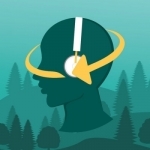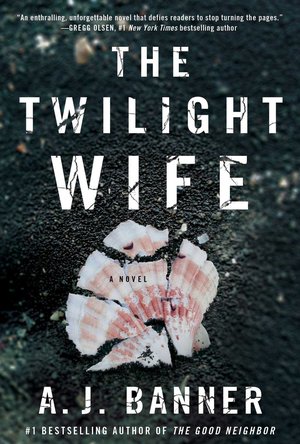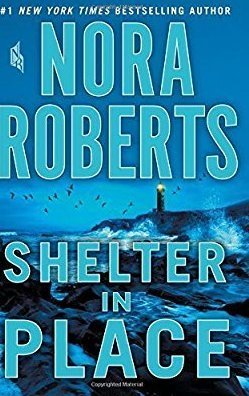Jarvis Cocker recommended The Dark Side of the Wall by The Stallion in Music (curated)
BookInspector (124 KP) rated The Twilight Wife in Books
Sep 24, 2020
I feel I should preface my review, letting all know I am slightly biased in my overall loving of the book, as Atticus, the star of the book, is a mini schnauzer, one of my favorite dog breeds, as well as my wife's.
The book succeeds on several levels. One way, it was a moving tale of one man's bonding with a dog that he really was not ever looking to bring into his life. The relationship that develops between the author, Tom Ryan, and Atticus was interesting to witness, as it appears almost as if Atticus and Tom were destined to be together. The two seem to be good for each other, allowing each of them to grow in ways, both emotionally and spiritually, that neither may have grown without having me the the other.
Another way it succeeded was in that there was good advice for the soul and the spirit. It was almost like a roadmap of what your life could be like without clutter of internet drama, iPhones, etc. It truly showed what absolute bliss it is to have a dog in one's life and all that comes out of the relationship that develops between man and dog.
If you love dogs and have not read this book, you are doing yourself a great disservice. If you don't love dogs, you could still read this and walk a totally different person! Either way, you need to read this book - your life will be so much better for it!
In closing, I just want to thank Tom Ryan, and Atticus, for an amazing story, and that I can not wait for the follow-up, which deals with the life of Will, the other mini schnauzer that found his way into both Tom's and Atticus' lives!
Leanne Crabtree (480 KP) rated Shelter in Place in Books
Jan 12, 2021
This one starts with Simone and her two friends going to the cinema to watch a film together. Simone goes to the toilet and minutes later hears screams and gunshots coming from the room she'd just left. She phones the police as three people go through the mall, killing as many people as they can. Simultaneously, Reed is working at one of the restaurants in the mall and as the shooters begin their killing spree he comes to the rescue of a little boy who's crying for his mum and keeps him safe until the cops arrive and take out the shooters.
Fast forward several years and survivors of the attack start to be killed off one by one and it seems Simone and Reed are on the killers list
I will start by saying that romantic suspense's are not my favourite genre. It has taken me about a month and a half to finish this. The romance definitely felt like an afterthought since it only kicked in about the half way point by which point I was just reading to see them take down the bad guy - whose POV we saw regularly throughout - and whose comeuppance felt like a bit of a disappointment. It all happened within about five pages from them making themselves known to Simone to them being incapacitated.
It's a 500+ page book! The first half was the two main survivors growing up and finding their calling in life - and I was rather bored, hence it taking me over a month to read! - the second half was a really played down romance while the killer made her way through the rest of the survivors on her meandering journey to them on Tranquillity Island.
I normally really enjoy reading Nora Roberts' books but I think I'll stick to her traditional romances and away from romantic suspense's in the future. Come Sundown and this one will be making there way to a charity shop for others to enjoy.
Debbiereadsbook (1659 KP) rated Amalgamated (Coming Home #2) in Books
Sep 29, 2019
Leo left his home in Australia to work in the UK five years ago. Now on a trip home, he comes face to face with part of the reason he left: Zak. Leo has loved Zak all this time, but will Zak even speak to Leo, after what he did?
My first thought when finishing this was: cute! Really cute! I liked it, a lot, but I can’t quite love it.
It’s written only from Leo’s point of view in the first person. And of course I’m gonna say I needed to here from Zak, you know I am. I fell here though, I am more than justified in saying it!
Leo wrecked Zak’s bike, after he saw Zak kissing someone else, and I wanted, no NEEDED to know what went through Zak’s mind at that point, but more so, when he finally admits to Leo why he did what he did all those years ago. Zak NEEDED his voice, and he doesn’t get it.
I also found I wanted to know what Leo was doing in the UK! I mean, I read the book, but I don’t think I saw what his work was!
Still, those points aside, I really did enjoy it.
It is one of those bath-tub/lunch break reads, that don’t take any concentrating on, and you can just fall into, and read, you know? It’s not a negative thing, not at all! Sometimes, you need a nice, sweet read, that allows you to decompress from a much longer, difficult read. Or in my case, a nice, easy read that allows you to sit out in the sun, on your lunch break in a 14 hour shift and ignore the world.
Thank you, Ms Seymour, for the very warm and fuzzies, too stinking cute read that was ABSOLUTELY needed today!
4 stars
**same worded review will appear elsewhere**

FreePrints Photobooks
Photo & Video and Shopping
App
FreePrints Photobooks – fast, convenient and FREE! Everyone loves photo books, but making them...

Sleep Orbit: Relaxing 3D Sound
Health & Fitness and Music
App
A unique 3D sound concept helps you sleep that you can't find anywhere else. Mix and match as many...

Patient Access
Health & Fitness and Utilities
App
PLEASE NOTE: The latest app version requires iOS 8 to enable the "Personal Health Record"...

Nestia - Making Life Simple
Lifestyle and Travel
App
Nestia provides a one-stop platform that is dedicated to making your living in Singapore a breeze. ...

Alarm Clock Pro
Utilities and Music
App
Alarm Clock Pro turns your iPhone or iPod touch into a beautiful digital clock with gorgeous themes...




